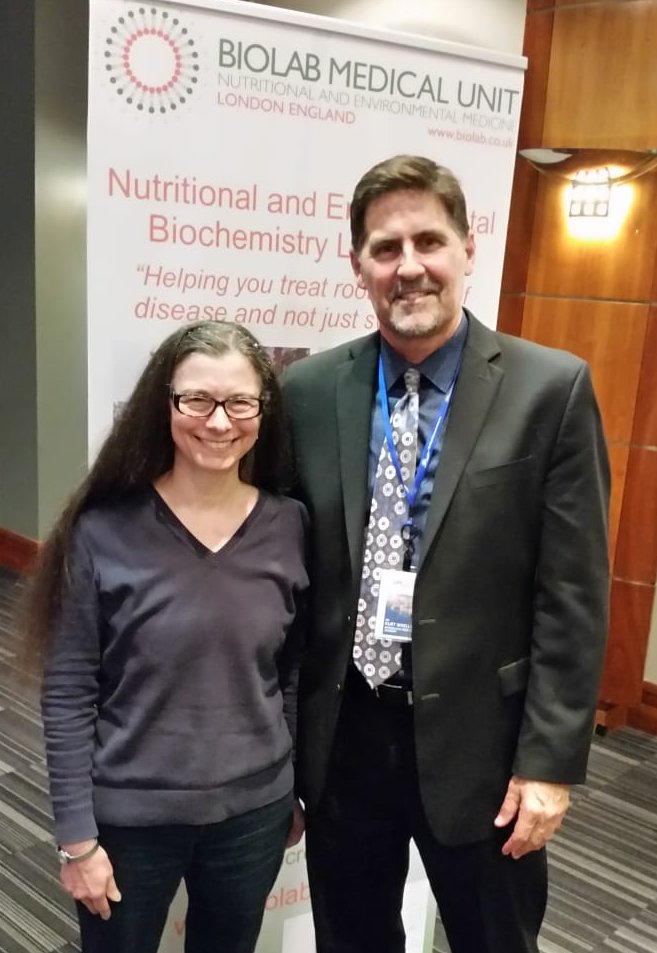People Who Have Inspired Me

My inspiration for how autism can be improved with diet and nutrition came originally from nutritionist Julie Matthews, who has 17 years’ experience with children on the spectrum.
I was then introduced to Dr Kurt Woeller’s teaching on how to improve autism and which tests help to identify what’s going on behind the scenes. He has over 20 years’ experience in this field and I’m even more encouraged by what’s possible with natural (non-drug) methods.
The third person, who really drew me into this field of work, was registered paediatric dietician Judy Converse. She works with special needs children and has 20 years’ experience. She specialised in helping children with special needs, when her own child was found to have special needs. She says that she has never met a child with sensory processing disorder, autism, Asperger’s or ADHD without nutrition problems. Nutrition, it seems, is key to helping children on the autistic spectrum.
Other people have drawn me to this field, because of the real hope and proven efficacy they offer about dietary approaches to improve autism. Take nutritional therapist Anne Pemberton, originally a nurse working in the NHS. She was told her own son had such severe autism that he would never live an independent life but would remain like a three-year-old. She applied her nutritional therapy training to help him, starting at age 12. He succeeded in getting a Master of Science degree in engineering and now holds a responsible role as a software engineer.
See why I’m inspired?
Another person is Dr Katie Reid, a biochemist and mother of five. Her youngest was diagnosed with autism as a three-year-old. Her daughter would have traumatic meltdowns that could last for hours. She had such poor language development that you could hardly make out what she was trying to say. She lacked eye contact and didn’t play with other kids. She was generally lost in her own world. Katie was determined to find answers. She persevered and found the solution to her daughter’s symptoms. By age eight her daughter no longer had a diagnosis of autism. Katie’s solution was in identifying the particular ingredients her daughter was reacting to in the diet, that were affecting her nervous system big time.
Are you inspired now?
Here’s my seven-step approach:
My Approach
Step 1: Assess baseline nutrition and check for clinical signs of nutrient deficiency.
Step 2: Start optimising the diet – no mean feat with fussy eaters!
Step 3: Do some lab tests to check where problems may lie (see Tests section below).
Step 4: Improve bowel flora (gut dysbiosis is common in autism; we’ll know from lab test results).
Step 5: Address biochemical imbalances and environmental toxins.
Step 6: Deal with secondary health issues such as anxiety and depression.
Step 7: Support lifestyle factors such as sleep.
Some of these steps may be carried out in a different order or they may overlap.
Exploring Together
Finding the right combination of factors that will help your child improve as much as possible is what I’m here to help you with.
But it’s a joint effort, because it can involve major detective work! And it needs your commitment to follow through, especially when the going gets tough.
Each child with autism is different and has a unique set of underlying problems that contribute to their symptoms. By using the right tests, exploring the nutritional options and employing tons of courage, parents really can help their special needs child improve.
In May 2019, I went to the Thinking Autism Conference in central London, where many parents find hope and inspiration. Here’s what Thinking Autism reports about how diet and nutrition can improve autism https://www.thinkingautism.org.uk/dietary-therapy-effective-for-autism/ and it just so happens that Julie Matthews was part of the team on that scientific study – the very person, who first inspired me in this field!
You can see me on a Pay-As-You-Go basis if you wish. Alternatively I offer an autism package.
Autism Package
If you’re a parent, who would like someone to explore further what nutrition and lifestyle can do to help your child on the spectrum, here’s what I offer:
A 5-consultation package – the first consultation is 1½ hours with your child. This is to give you chance to tell me everything I need to know towards personalising a management plan for your child and for me to assess your child. When you bring your child along, you will need to have a second adult to help keep boredom, behavioural problems, etc., at bay. There’s a really nice Common nearby to go for a walk in with ducks, swans and geese to enjoy and a child’s play area, besides plenty of space to kick a ball around. We can be flexible and shorten this first consultation and just check your child’s clinical signs and ask him/her a few simple questions. Then mum and/or dad can come back for a longer session. Or we could do things the other way round, if that suits you better.
You can use the remaining consultations up at any time within 9 months of the first consultation. Cost: £375, paid in advance by bank transfer. This is generally enough time to start seeing results.
Tests
There are some tests worth considering. Before you gasp, you don’t need to do them all. We discuss what’s appropriate for your child. If you prefer to spread the costs, that’s fine. If you’ve already had any done this year, you don’t need to do them again. Just bring me the results.
-
Either Envirotox screen (Organic Acids, Toxic Chemicals & Glyphosate) (urine) - £377
The chemicals and glyphosate results tell us if they are being eliminated well or not.
Or if you prefer, we can do the Organic Acids Test on its own (urine) - £185
This gives you a broad overview of what’s happening with the gut flora, neurotransmitter function, any inborn errors of metabolism and some vitamin nutrient deficiencies.
-
Gluten/Casein Peptides Test (urine) - £85
This gives an indication of whether the proteins in wheat and dairy are being poorly digested and consequently affecting the brain or not. If they are, then you’re highly likely to be dealing with a child addicted to these opiate-like compounds.
-
Serum Ferritin (blood) - £47
If this is low, then children struggle more to learn, focus, sleep, eat, and behave – all issues that are commonly challenging for children with autism.
-
Food Sensitivity IgG Panel (94 foods + Candida) (blood spot or serum) - £146
This helps to identify any delayed immune reactions to foods eaten, that could be causing no end of symptoms.
-
A Comprehensive Digestive Stool Analysis - £220
This tells us about what critters are in the gut, from beneficial bacteria to troublesome populations of bacteria, yeasts and parasites. In addition, you get an insight into other factors that could be causing digestive problems and inflammation in the gut, which could be responsible for pain and misery.
If you suspect parasites, these can be tested for more cheaply with the Comprehensive Parasitology test, which also gives you a breakdown of the gut flora - £125
Even cheaper is a Microbiology profile stool test that just looks at the gut flora - £80
So there you have the options.
If you’d like to pursue the approach I offer, get in touch via my contact form or call me on 020 8133 2860 and if I’m not available to answer, please leave a message, so I can return your call.
